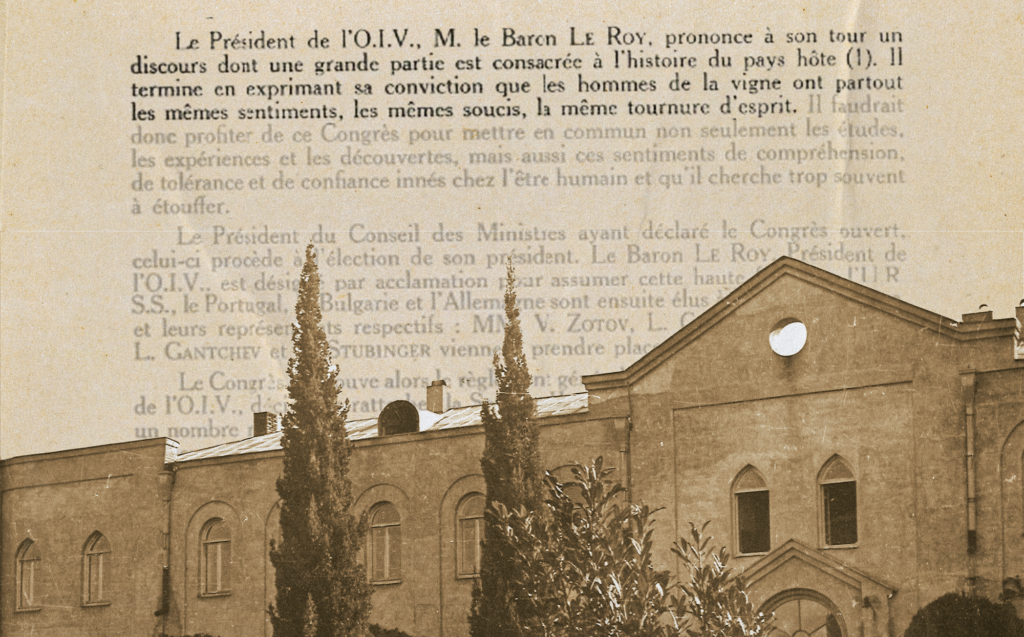
Breeding new vine varieties, improvement of the wine quality, selecting the appropriate geographical area for each vine variety—this is the small list of the issues that were discussed at the 1962 World Congress in Georgia.
The documents preserved in France, in the archives of the International Organization of Vine and Wine (OIV), the organization sent to Wine Kakheti a while ago.
In 1962, the Tenth World Congress of winegrowers and winemakers was held in Georgia, at the initiative of the Institute of Viticulture and Winemaking. The international viticulturists and winemakers, including the president of OIV, Baron Pierre Le Roy de Boiseaumarié attended the congress.
As it is mentioned in the report of the congress, Baron Le Roy dedicated his speech to the history of the host country: "He ended his speech with the faith that the winegrowers in each country have the same feelings, thoughts, and concerns; we are obliged to use this congress to unite not just the research, experiences, and discoveries, but also the Innate human feelings of trust and mutual understanding.".
The delegates toured the Telavi collection plots, museums, and exhibition halls; they tasted the wine produced from the ancient varieties of vine.
The congress promoted the popularization of the Georgian wine in the whole world. After the congress, exporting the Georgian varieties to the European countries became a systematic and active process.
The former director of the Institute of Viticulture and Winemaking, Nodar Chkhartishvili, recalls that with the support of the institute, the active communication with the European colleagues began: it was started introducing the Georgian vine varieties to them.
"In this way, a connection was established with almost all of Europe. The research institute was able to do this. Georgian vine varieties are also mentioned in French ampelographies, including Saperavi and others. Thus, on the basis of mutual cooperation and not spontaneously, it has started the exporting of Georgian vine varieties outside the country," says Nodar Chkhartishvili.
In the documents preserved in the OIV archive, it is also mentioned that the congress was distinguished by the large number of delegates.
„The delegates expressed satisfaction over the contacts established with the scientists of this country. They expect that these contacts will be strengthened and the field of viticulture will develop farther as a result of this friendly cooperation. This friendship is one of the best results of this great congress. This abundance of delegates gives us hope that the research in the field of viticulture will expand. Viticulture seems to have the power to unite the people“.